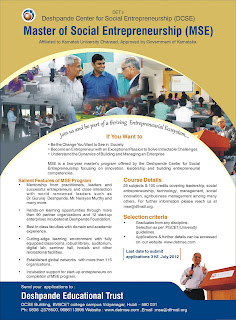How To Make A Bad Job Better (Without Quitting)
Ref: http://www.bullhornreach.com/article/view/42019?referer=www.linkedin.com&shortlink=1405417
The excitement you once had for your job just isn't there anymore. Your workday seems more like a tedious march than an invigorating run. Challenges that once stimulated you now hold less appeal, and you deal with the same set of people, processes and problems every day. Is it time to call it quits?
Not necessarily. Every career has its lulls, and your lack of excitement doesn't necessarily signal a need to switch jobs. However, passively waiting for things to change will only prolong your angst and get in the way of your productivity and professional development.
Don't look back
The best way to address the problem is to change your way of thinking about it. If you're focused on reigniting or revitalizing your career, you're not thinking about the future. These words describe restoring a past condition, rather than starting fresh in a new direction. Aspects of your job that energized you in the past may no longer do the trick. Reminding yourself of "the good old days" can blind you to what's great about your current role and keep you from creative innovation.
Even the smallest changes in how you view your company and your career can make a big difference in your overall job satisfaction. With that in mind, here are some steps toward breathing new life into your work.
Step 1: Do nothing
Forcefully igniting your professional passion is a sure way to smother any remaining embers. Instead, get away from the office and focus on something outside of work. If you have vacation days saved up, take them. You might find that what you needed most was a break. If you come back refreshed, use your newfound energy to take a closer look at your day-to-day work life.
Step 2: Start small
Are there elements of your professional life that you do in a certain way out of habit? If so, try a few changes. Would varying your commute save time or make the drive more interesting? Are there colleagues you want to get to know better? Changing your routine can open up unforeseeable possibilities. Having lunch with a new colleague, for example, might expose you to a fresh perspective on your work.
Step 3: Invent changes
Having shaken up your daily routine a bit, try to come up with five slightly larger, but no less achievable, objectives. Your list might be a hodgepodge, like this one: "Streamline the XCorp project," "Sign up for the training course I've been putting off," "Clarify workflow with Dave," "Set more realistic email response expectations." Identifying and executing small, specific changes can immediately help you become more engaged in your work.
Step 4: Talk to your boss
If more fundamental aspects of your job are sapping your energy, don't assume they can't be changed. Set up a meeting with your boss, framing the discussion in terms of ways you can add greater value to the company rather than admitting you're no longer feeling motivated. Identify projects that excite you, and ask to take on more of that kind of work. Better yet, ask to take on something that doesn't seem right up your alley. Your manager might be able to help you explore some unfamiliar boulevards and highways. When suggesting changes to your boss, remember to describe how they will benefit the company, not just your own job satisfaction.
Step 5: Consider a bigger move
Staying too long in a job you no longer enjoy leads to career stagnation. If you've taken the above steps and are still uninspired, it may be time to consider a new position. Just make sure that you're not counting on a change of scenery to improve your outlook. When considering a new opportunity, ask yourself how its challenges would differ from those you'd be leaving behind.
Step 6: Keep it new
Whether you stay in your current role or find a new one, learn from your current situation. Treat it as a wake-up call to start managing your work life more actively. Get in the habit of continually molding your job according to your interests and the changing dynamics of your field. Being inspired is the easy part; staying that way takes an ongoing commitment.
Your ability to sustain your interest depends less on the external circumstances of your job than on your approach to your career. Many people focus on getting better at their work without pausing to consider how their work can get better for them. If you focus only on becoming more efficient, you'll likely just keep shouldering heavier workloads to fill the time you save. That kind of productivity can be valuable in the short term, but it won't create the fresh challenges that will keep you stimulated for years.
Finding your spark is only the beginning. By embracing change of all sizes, you can build a career that grows along with you -- and generates its own rewards.





